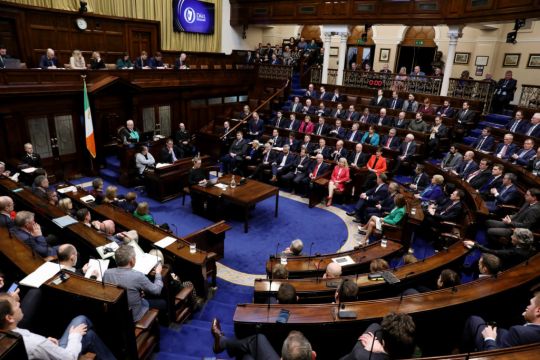A leading European anti-corruption body has called for integrity checks to be introduced in advance of the appointment of Government ministers, ministers of state and the Attorney General as a measure to prevent corruption in Ireland.
A new report by the Group of States against Corruption (GRECO) has recommended similar checks should also apply to senior civil servants and special advisors in order to identify and manage possible conflicts of interest among individuals considered “persons with top executive functions” (PTEFs).
GRECO, which is the anti-corruption body of the Council of Europe – Europe’s main human rights organisation – has also proposed that new office holders in the Republic should receive practical training on integrity standards on their appointment with regular refresher briefings.
It further recommends that rules should be introduced which govern contact between PTEFs and lobbyists that seeks to influence the public decision-making process as well as a tightening of post-employment restrictions on senior office holders with regard to both lobbying and employment.
The evaluation report by GRECO of the effectiveness of Ireland’s framework to prevent corruption among senior politicians, civil servants and political advisors as well as gardaí, claims the ethics watchdog – the Standards in Public Office Commission (SIPO) – needs reinforced resources and powers to supervise the implementation of integrity standards.
It called on SIPO to be given powers to carry out substantive, in-depth checks on a routine basis on the annual statements of interests submitted by PTEFs.
“It is telling that no investigations into PTEFs’ possible contraventions of integrity standards have taken place based on the current setting,” the report observed.
The report – the fifth edition of its analysis of Ireland’s anti-corruption safeguards – said SIPO also needs to be given powers to investigate and impose sanctions for breaches of rules on lobbying and taking up employment after leaving government.
GRECO said the current system of a 12-month “cooling off” period for departing office holders had several weaknesses even though it believed such a timeframe was “not only appropriate but necessary.”
It said the system would also be more effective if the current possibility of waiving the “cooling off” period was not allowed.
Lack of focus
The 63-page report observed that existing prevention policy documents lack the necessary focus on the specific exposure to corruption of PTEFs.
While GRECO acknowledged that there are already integrity standards in Irish legislation, it claims codes of conduct geared towards PTEFs are needed combined with appropriate supervision and sanctions for breaches of such codes.
It also called for PTEFs to be required to provide quantitative data on their interests or liabilities in making annual declarations to SIPO.
The anti-corruption body said there should also be more transparency regarding contact between senior office holders and lobbyists including regular public reports of meetings by PTEFs themselves.
In Ireland, the current obligation is entirely on lobbyists to make declarations of contacts with office holders to the Register of Lobbying.
In relation to An Garda Síochána, the report claims the force’s existing Code of Ethics, which it described as “suffering several shortcomings,” should be revised to cover all relevant topics governing integrity with training on the updated code being made compulsory for all new recruits and serving gardaí.
It said IT systems used by gardaí should be strengthened to facilitate improved monitoring of integrity breaches.

GRECO also supported reform to allow for greater independence and resources for dealing with complaints against gardaí as well as improving access to police information while still preserving the integrity of ongoing investigations.
It recommended that gardaí in the “most sensitive posts” should be rotated on a regular basis to reduce the risk of corruption.
The latest report said only 45 per cent of recommendations relating to preventing corruption among parliamentarians, judges and prosecutors in Ireland made in its previous evaluation report had been fully implemented with 35 per cent of recommendations not implemented so far.
However, GRECO noted that the overall level of corruption in Ireland is “relatively low and stable.”







